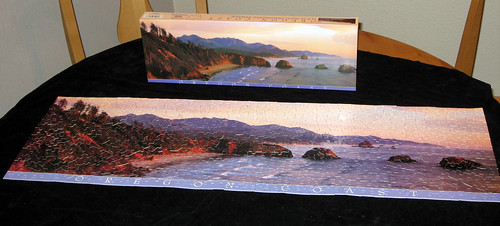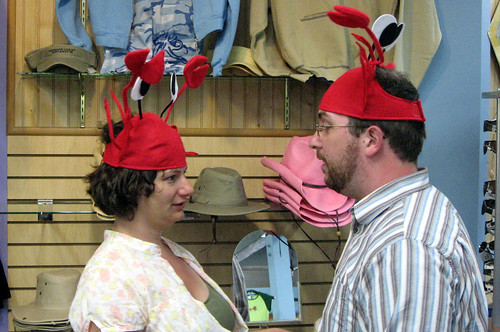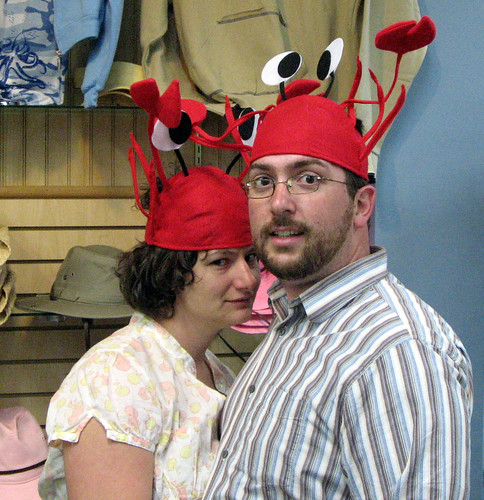When you are younger, summer vacation is a great oasis of sloth. When you are a grown up summer vacation lasts only a week and usually involves catching up on all the errands you have been putting off for the past three years.
Last week, I went with the family to the Oregon coast, and catching up with the family is an errand I have been putting off for the past three years.
There were six of us in all - both of the Folks, my brother, Will (aka Wubbahed aka Williepie), his lovely wife, Kat (aka Katpie), and my lovely wife, Mrs. Wonderifical-Turnage.
Why the Oregon coast?
Well, how about this:

Or this:

Or this:

It was mad glorious beautiful everywhere, even though the fishing docks smelled like… fishing docks.
On our first day there, we looked out window of our room and saw a pirate ship.

I have no idea if the boat was out there promoting a movie
We went on a lot of hiking trails. On one of them, my brother tried to take a picture of this ugly plant with his extremely cool Nokia N95

We went out in a boat for some whale watching. Whale watching is really fun, but not the best thing in the world to photograph. Whales move fast and you can’t really predict where they will come up. Plus, the pictures don’t capture the motion, noise, and sheer excitement of a whale going, “PSSSHHHHHHHHH!!!!”

Here is a great picture of the back of my Mom’s hair in crystal clear focus, while the mighty gray whale is blurry in the background. Truly, I have missed my calling as a professional photographer. Mall Santas everywhere are weeping.

Here is a sea lion on a buoy.

We went to the aquarium, which was fun, but most of the animals living there came from the harbor that was all of ¼ mile away. So we paid money to see the same sea lions that were sunning on the rocks just outside the aquarium.

Having said that, the sea lions were pretty cool. So were the sea otters.

They also had a Giant Squid-o-Meter. It looks like six of me would equal one giant squid.

While at the same time, it would take eight of my lovely wife to make one giant squid.

Sadly, during our aquarium tour the disembodied shark teeth ate my brother’s hand. While posing for this picture, other aquarium patrons just laughed and laughed at his misery.

Here is the jigsaw puzzle I finished. Sure, Mom, and Williepie did the borders and large chunks of the image, but I put in the final piece. So, technically, I finished the puzzle.

My brother accidentally left his extremely cool Nokia N95

It is a great little phone. In the short time I handled it, I was able to send a high-priority text message to everyone in his address book. The text message? “From now on, please do not call me Williepie – CALL ME SILLIEPIE!”
His boss seemed to appreciate it most of all.

Their big googly eyes met from across the room. With the rich smell of butter sauce in the air, they took tentative sideways-steps towards each other. Love at first sight was never this tasty.

Someone told me that the calories you consume on vacation do not count. Good Lord, I hope so.

Somewhere in there, I drank beer from the local brewery as well as a nice little concoction called Moose Drool. It tasted better than it sounds.
In conclusion, I like vacations.








